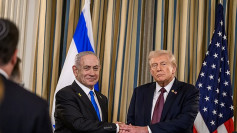The United Kingdom's government has released the first official estimation of the expenses surrounding Queen Elizabeth II's state funeral and subsequent events, revealing a staggering cost of nearly GBP 162 million ($201 million) to the country's taxpayers. The Queen, who served as Britain's longest-reigning monarch, passed away last September.
Hundreds of thousands of mourners, along with numerous foreign heads of state and royals, lined up day and night to pay their respects as the Queen's coffin was displayed in London and Edinburgh. Accommodating the masses and ensuring security measures, along with the subsequent funeral held on September 19, made up the extensive cost.
In a parliamentary statement, finance minister John Glen disclosed the total estimated cost as GBP 161.7 million. The majority of the expenses, GBP 73.7 million, fell under the responsibility of the interior ministry, in charge of law enforcement. The Department for Culture, Media and Sport contributed GBP 57.4 million, while the Scottish government contributed GBP 18.8 million.
Glen stated, "The government's priorities were that these events ran smoothly and with the appropriate level of dignity, while at all times ensuring the safety and security of the public."
However, these costs are facing scrutiny as the United Kingdom grapples with an economic downturn, with citizens navigating the worst cost-of-living crisis in recent history. Moreover, the price tag of the recent coronation of King Charles III, Queen Elizabeth's successor, is causing furrowed brows and dissatisfaction among the populace.
In response to reports claiming the coronation's security costs exceeding GBP 100 million, Buckingham Palace denied the allegations. The ten-day ceremonial events marking Queen Elizabeth's demise and King Charles' ascension called for a substantial police presence, involving more than 5,000 officers from across the nation. This led to the funeral being tagged as the largest policing operation ever executed by London's Metropolitan Police, surpassing even the 2012 Olympic Games' opening and closing ceremonies.
Critics of the monarchy have decried the coronation as a frivolous use of limited public funds. Still, supporters argue that the extended weekend of celebration, which included an additional public holiday, would bolster the economy through increased spending and tourist visits.






